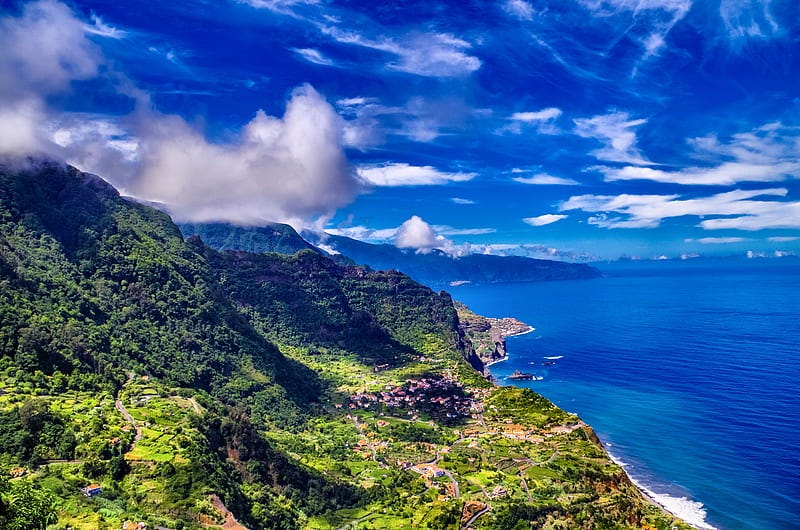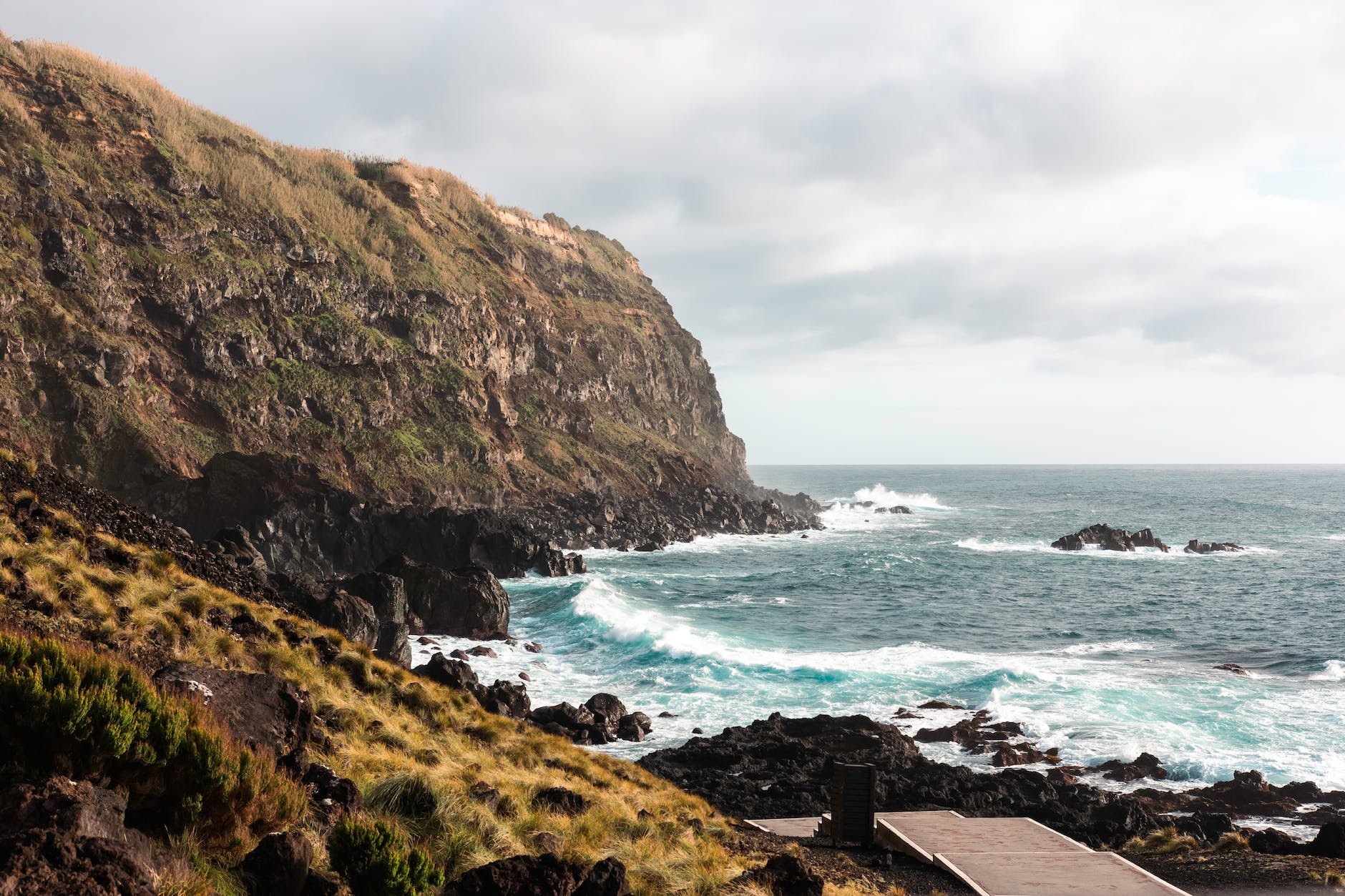Unveiling The Enchanting Azores: A Comprehensive Guide To Portugal’s Oceanic Jewels
Unveiling the Enchanting Azores: A Comprehensive Guide to Portugal’s Oceanic Jewels
Related Articles: Unveiling the Enchanting Azores: A Comprehensive Guide to Portugal’s Oceanic Jewels
Introduction
With enthusiasm, let’s navigate through the intriguing topic related to Unveiling the Enchanting Azores: A Comprehensive Guide to Portugal’s Oceanic Jewels. Let’s weave interesting information and offer fresh perspectives to the readers.
Table of Content
Unveiling the Enchanting Azores: A Comprehensive Guide to Portugal’s Oceanic Jewels

Nestled amidst the vast expanse of the North Atlantic Ocean, the Azores archipelago, a collection of nine volcanic islands belonging to Portugal, beckons travelers with its breathtaking landscapes, diverse ecosystems, and rich cultural heritage. This volcanic paradise, often referred to as the "Hawaii of Europe," offers a unique blend of natural wonders, adventure activities, and a tranquil ambiance, making it an ideal destination for discerning explorers.
A Geographic Tapestry: Exploring the Azores Islands
The Azores Islands, a testament to the dynamic forces of geology, are scattered across a triangular expanse of the North Atlantic, roughly 900 miles west of mainland Portugal. This geographical arrangement, coupled with the islands’ volcanic origins, has resulted in a captivating mosaic of diverse landscapes.
The Nine Islands: A Closer Look
The Azores archipelago comprises nine distinct islands, each with its own unique character and allure:
- São Miguel: The largest and most populous island, São Miguel is a microcosm of the Azores’ diverse landscape, boasting lush green valleys, volcanic lakes, cascading waterfalls, and dramatic coastal cliffs.
- Terceira: Known for its historic city of Angra do Heroísmo, a UNESCO World Heritage Site, Terceira offers a rich tapestry of historical landmarks, cultural events, and vibrant nightlife.
- Santa Maria: The southernmost island, Santa Maria, is a haven for beach lovers, with its golden sands, crystal-clear waters, and diverse marine life.
- Graciosa: A tranquil island known for its volcanic landscapes, Graciosa offers a peaceful retreat for nature enthusiasts, with its serene lakes, volcanic caves, and picturesque villages.
- Flores: The westernmost island, Flores, is a paradise for hikers and nature photographers, with its cascading waterfalls, lush green valleys, and stunning coastal views.
- Corvo: The smallest island, Corvo, is a remote and unspoiled gem, offering a glimpse into a simpler way of life, with its charming village, rugged cliffs, and abundant birdlife.
- Faial: Known as the "Blue Island" due to its abundance of hydrangeas, Faial is a vibrant island with a rich maritime history, boasting a bustling port, a renowned botanical garden, and a captivating volcanic crater.
- Pico: Home to the highest peak in Portugal, Mount Pico, Pico Island is a haven for outdoor enthusiasts, with its volcanic landscapes, vineyards, and whale watching opportunities.
- São Jorge: The "Green Island," São Jorge, is a paradise for hikers, with its lush green valleys, volcanic peaks, and dramatic coastal cliffs.
The Power of Volcanism: Shaping the Azores’ Landscape
The Azores owe their existence to the dynamic forces of volcanism. The islands are formed by volcanic hotspots, areas where magma rises from the Earth’s mantle, creating volcanic eruptions that build up over time. This ongoing process has shaped the islands’ dramatic landscapes, resulting in:
- Volcanic Craters: The islands are dotted with volcanic craters, some filled with water, forming serene lakes, while others are now fertile agricultural areas.
- Lava Flows: The islands’ volcanic history is evident in the vast fields of solidified lava flows, creating unique and rugged landscapes.
- Thermal Springs: The volcanic activity also gives rise to numerous thermal springs, offering a relaxing and rejuvenating experience.
Exploring the Azores: A Journey Through Time and Nature
The Azores Islands offer a diverse range of experiences for travelers, catering to a wide array of interests:
- Hiking and Outdoor Adventures: The islands’ volcanic landscapes provide an ideal setting for hiking, with trails ranging from gentle walks to challenging climbs.
- Whale and Dolphin Watching: The Azores are a renowned whale watching destination, with a diverse array of cetaceans, including sperm whales, blue whales, and common dolphins.
- Diving and Snorkeling: The islands’ clear waters and diverse marine life make them a haven for diving and snorkeling enthusiasts.
- Cultural Immersion: The Azores boast a rich cultural heritage, with charming villages, traditional festivals, and a vibrant culinary scene.
- Relaxation and Rejuvenation: The islands offer a tranquil escape from the hustle and bustle of everyday life, with their serene landscapes, thermal springs, and welcoming atmosphere.
A Glimpse into the Azores’ History and Culture
The Azores’ history is deeply intertwined with the sea, with the islands serving as important stopping points for explorers and traders throughout the centuries. This maritime heritage is reflected in the islands’ architecture, cuisine, and traditions.
- Portuguese Influence: The Azores have been a part of Portugal since the 15th century, and the islands’ culture is deeply rooted in Portuguese traditions.
- Whale Hunting: The Azores were once a major center for whale hunting, and this industry left a lasting mark on the islands’ culture and economy.
- Agriculture and Food: The Azores are known for their fertile volcanic soil, which produces a wide variety of agricultural products, including pineapples, tea, and dairy products.
- Festivals and Traditions: The Azores celebrate a variety of festivals throughout the year, reflecting the islands’ rich cultural heritage, including religious processions, folk dances, and music performances.
The Azores: A Sustainable Paradise
The Azores are committed to sustainable tourism, with a focus on protecting the islands’ natural beauty and preserving their cultural heritage. This commitment is reflected in:
- Environmental Protection: The islands have strict environmental regulations to protect their unique ecosystems.
- Sustainable Tourism Practices: Many businesses in the Azores adhere to sustainable tourism principles, minimizing their impact on the environment.
- Community Involvement: Local communities are actively involved in preserving the islands’ cultural heritage and promoting sustainable tourism.
FAQs about the Azores
1. How do I get to the Azores?
The Azores are easily accessible by air, with direct flights from major European cities, including Lisbon, Paris, and London.
2. What is the best time to visit the Azores?
The Azores can be visited year-round, with mild temperatures and ample sunshine. The best time to visit depends on your interests:
- Spring (April-May): Ideal for hiking, whale watching, and exploring the islands’ natural beauty.
- Summer (June-August): Perfect for swimming, sunbathing, and enjoying the islands’ vibrant festivals.
- Autumn (September-November): A beautiful time to experience the islands’ changing colors and enjoy a more relaxed atmosphere.
- Winter (December-March): Ideal for whale watching, hiking, and enjoying the islands’ festive atmosphere.
3. What are the Azores like for families?
The Azores are a fantastic destination for families, with a wide range of activities to keep everyone entertained.
4. What are the Azores like for couples?
The Azores are a romantic destination, with breathtaking landscapes, charming villages, and a tranquil atmosphere.
5. What are the Azores like for adventure travelers?
The Azores offer a wide range of adventure activities, including hiking, diving, whale watching, and kayaking.
Tips for Visiting the Azores
- Plan your itinerary in advance: The Azores are a relatively small archipelago, but the islands are spread out, so it’s important to plan your itinerary in advance.
- Rent a car: Renting a car is the best way to explore the islands at your own pace.
- Pack for all weather conditions: The Azores can experience a wide range of weather conditions, so be sure to pack for all possibilities.
- Learn a few basic Portuguese phrases: While English is widely spoken in the Azores, learning a few basic Portuguese phrases will enhance your travel experience.
- Try the local cuisine: The Azores have a delicious and diverse cuisine, so be sure to sample the local specialties.
Conclusion: A Journey to Remember
The Azores Islands, with their captivating landscapes, diverse ecosystems, and rich cultural heritage, offer a unique and unforgettable travel experience. Whether you’re seeking adventure, relaxation, or cultural immersion, the Azores have something to offer everyone. So, pack your bags, embrace the beauty of this volcanic paradise, and create memories that will last a lifetime.








Closure
Thus, we hope this article has provided valuable insights into Unveiling the Enchanting Azores: A Comprehensive Guide to Portugal’s Oceanic Jewels. We thank you for taking the time to read this article. See you in our next article!